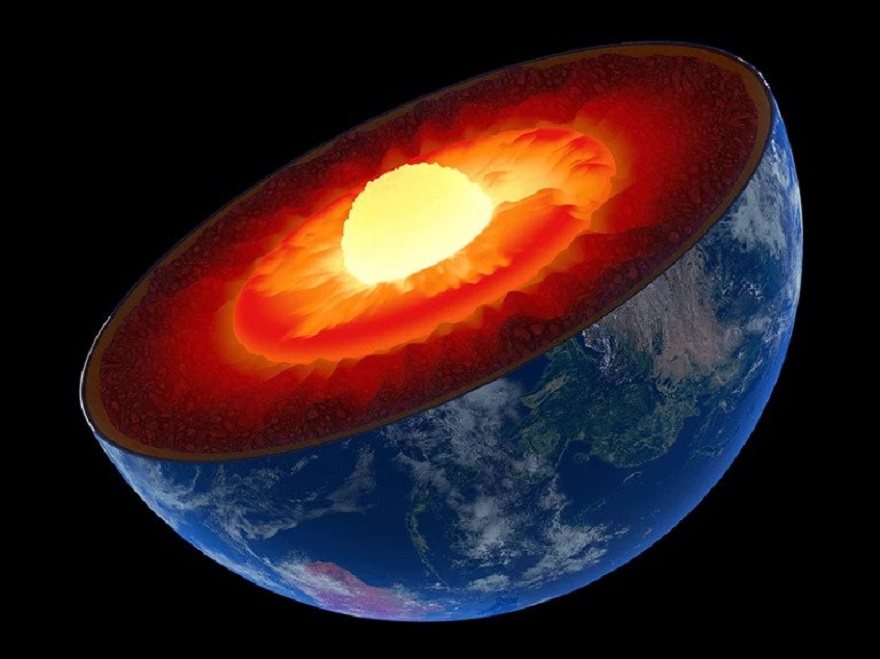The Earth’s core rotates slightly faster than the rest of the planet. However, in a newly published study, scientists claim that around 2009, this phenomenon stopped. Whether this is actually the case remains a debatable question.

How does the Earth work inside?
A group of scientists from Peking University published a study in the journal Nature Geoscience that instantly became sensational, since it could be understood as a statement that the Earth’s core had stopped rotating.
In order to understand what scientists have actually found, iit is necessary to turn to the history of studying the depths of the Earth. In 1936, it was found that inside the core of our planet, consisting of liquid iron and with a diameter of 7000 km, there was a solid body.
Its diameter is 2,400 km, and it is called the inner core. It is completely separated from the mantle by a layer of molten liquid, so it may well rotate faster or slower than the rest of the planet, but at the same time affect the formation of its magnetic field and the duration of the day.
In 1996, researchers used data from seismographic stations on an earthquake that occurred on the other side of the planet. Based on the speed of passage of waves, scientists found that the inner core rotated slightly faster than the planet’s mantle. A little later, it was even found that this value was greater by 0.1° per year.
Controversial results
However, not all scientists agreed with this statement. Some of them claimed that there was no accelerated rotation of the core. The others said that it happened only from time to time.
For example, in 2022, scientists from the University of Southern California studied seismic waves generated by nuclear tests in 1969 and 1971 and came to the conclusion that during this period of time the inner core rotated even slower than the mantle, and accelerated later.
What have scientists found about the Earth’s core?
The new study, as well as the previous ones, is based on comparing the speed of passage of seismic waves through the Earth’s core. This time, scientists have collected a whole bunch of results obtained between 1996 and 2021, and they unequivocally indicate that during this time the rotation speed of the Earth’s inner core has changed.
Specifically, they claimed that in 2009, the accelerated rotation of the inner core in relation to the mantle disappeared. This did not mean that it stopped rotating altogether, but only began to rotate at the same speed as the rest of the planet.
Moreover, there is evidence that the rotation speed of the core will soon even become less than in the mantle. Depending on the point of reference, it could even be interpreted so that the core of the Earth began to rotate in the opposite direction.
In any case, the results of the new study are as controversial as those of all the previous ones. There are many other recently found facts with which this sensational conclusion does not agree well. The rotation of the Earth’s core has an unambiguous effect on the functioning of the planet’s magnetic field and the duration of the day. But how this happens and how strong the connection is, scientists cannot say.
According to www.independent.co.uk, www.nature.com
Follow us on Twitter to get the most interesting space news in time
https://twitter.com/ust_magazine

